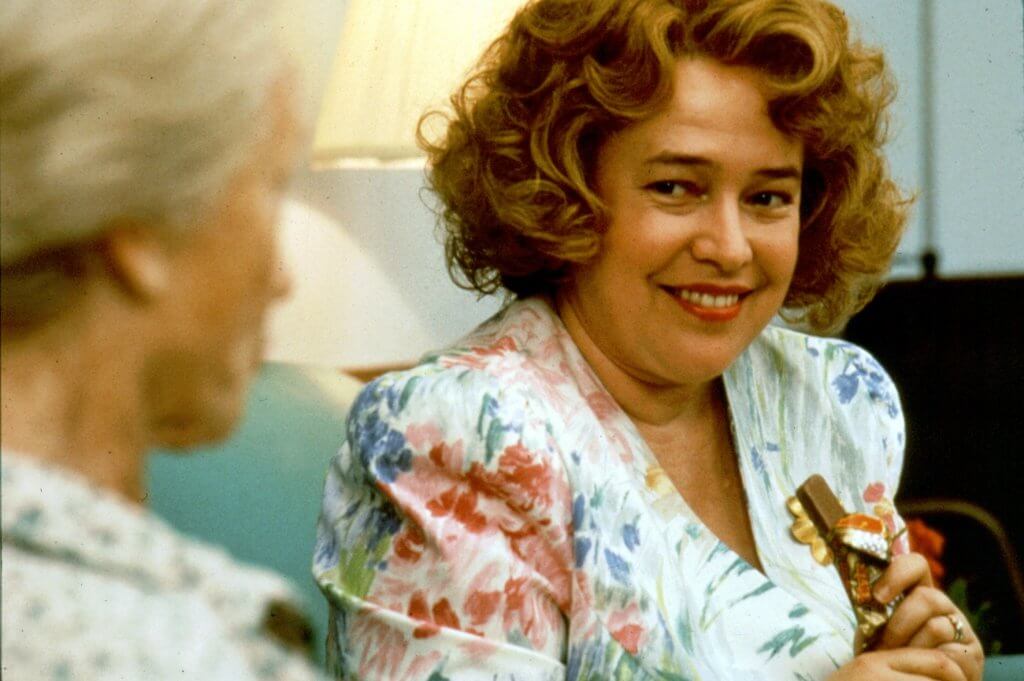A Golden Age of Gratitude & Giving Back
- Oscar-winning actress Kathy Bates, 76, never fathomed that her career would continue to climb as a woman “of a certain age” in Hollywood, which is why she is gushing with gratitude over her latest starring role on CBS’ revival of the 1980s legal drama television series, Matlock.
- As a two-time survivor of both breast cancer and ovarian cancer, the Memphis-born star is already immensely thankful for second — and third — chances, and doesn’t take life or her career for granted.
- It is important for all women to get tested for the BRCA gene mutation, which can increase your risk for breast and/or ovarian cancer, along with many other types of the disease. Though Bates has tested negative, she also shares that it is by all means, not a “get out of jail free card,” admitting that she was “less vigilant” because of it, and does her part to raise awareness about the importance of genetic testing.

Along with Bates, the revival series stars actor Jason Ritter, who is the son of the late Three’s Company star John Ritter, and Skye P. Marshall, a rising star most known for her work on the medical drama Good Sam on CBS (2022).
View this post on Instagram
“It’s been astounding. I can’t believe it,” Bates continued, clearly still struck with awe. She recalled standing outside the studio with executive producer Eric Christian Olsen who turned to her and said: “We just have to enjoy this fleeting moment, because it really is magnificent.”
“I’ve just never experienced anything like this,” Bates added.
According to The Hollywood Reporter, citing VideoAmp media tracking, 22.8 million people have watched the premiere episode of the Bates version of Matlock, considered a massive achievement of success in this era of endless TV and streaming options.
THR noted that the show, needless to say, has already been picked up for a second season.
Kathy Bates’ Ovarian Cancer Diagnosis
Bates was diagnosed with ovarian cancer 20 years ago in 2003. In a previous interview with SurvivorNet, Bates said the diagnosis “knocked the stuffing out of me.”
Ovarian cancer, which starts in the ovaries, the female reproductive organs, is often called the “cancer that whispers” because women don’t often experience symptoms until it has reacher later stages, says Dr. Beth Karlan, director of the Women’s Cancer Program at the Cedars-Sinai Medical Center. So recognizing warning signs is extremely important. Symptoms may include:
- Feeling full earlier/decrease in appetite
- Feeling bloated
- Changes in bowel habits
- Pain in the pelvis
- Urinary symptoms, such as an urgent need to go
- Extreme fatigue
- Abdominal swelling
- Pain during sex
Bates underwent surgery and chemotherapy, which was an extremely difficult experience for her.
“You come off of the steroids, and I just found that the hardest part,” Bates said. “It was like detoxing. I was shaking, I couldn’t talk, and I remember I had to go do a voiceover and it was just so, so difficult.”

After beating ovarian cancer, Bates wound up getting diagnosed with breast cancer, an incredibly difficult double whammy after she hadn’t even told the world about her first diagnosis.
“I don’t think I really came out about being a cancer survivor until I developed breast cancer in 2012,” Battes added to SurvivorNet.
Kathy Bates’ Breast Cancer Diagnosis
She was diagnosed with stage 2 breast cancer and had a double mastectomy to remove both breasts. Bates also had 19 lymph nodes removed, a common treatment method when the cancer has spread beyond the breasts. The lingering pain this all caused her left her feeling worse than she had from ovarian cancer.
Bates then developed lymphedema, which breast cancer patients are at higher risk for if they have lymph nodes removed from under the arm. The swelling condition can affect the arms, legs or other areas of the body near the lymph nodes removed.
“I was bitter, I was depressed,” she shared. “I thought my career was over, I thought, ‘There’s no way, I’m done, everything is done.'”

Luckily with the help of Dr. Emily Iker, a lymphedema expert, Bates was able to find some relief, using compression sleeves, and receiving therapy. Losing weight has also helped. Bates most recently has turned to the controversial, but effective drug Ozempic, originally approved for use in type 2 diabetes patients to lower insulin, and losing weight happens to be one of the major side effects/benefits, which she credits the majority of her 100-lb weight loss.
It’s not known which patients will develop lymphedema, but women who have many lymph nodes removed and/or radiation therapy are at a higher risk. Lymphedema can happen shortly after treatment or even years later. It’s critical that you monitor for swelling since detecting lymphedema early is key.
Treating lymphedema after breast cancer
Bates, who remains cancer-free, recognized her emotional response to her two diagnoses and lymphedema, and decided to take action, get vocal about her story, and not only raises awareness for early detection, but also help others who are going through similar challenges.
The BRCA Gene Mutation
It is also highly important for women to get tested for the BRCA gene mutation, which can increase your risk for breast and/or ovarian cancer, along with many other types of the disease.
In a prior interview with SurvivorNet, Dr. Rebecca Arend, Associate Scientist at the University of Alabama, Birmingham, explained the mutation in terms of its ability to repair damaged DNA.
“What a BRCA mutation is, is a defect in your ability to repair a double-strand break [in your DNA],” Dr. Arend told SurvivorNet. “The BRCA mutation [which is passed on from a father or a mother], can cause a variety of cancers, including fallopian tube and peritoneal cancer, which are ovarian cancers.”
Dr. Arend continued. “Furthermore, while about 1.3 percent of women in the general population will develop ovarian cancer sometime during their lives, it is estimated that about 44 percent of women who inherit a harmful BRCA1 mutation, and about 17 percent of women who inherit a harmful BRCA2 mutation, will develop ovarian cancer.”
Thought Bates said she tested negative, she also shares that it is by all means, not a “get out of jail free card,” admitting that she was “less vigilant” because of it.
Therefore, staying up on checkups is a must, with or without the gene mutation.
Healing Through Art, During & After Cancer
While staying up on your healthcare, taking care of your mental health is equally as important, and continuing (or starting) to pursue a creative passion can be extremely therapeutic.
Alongside treatment or after beating cancer some people may turn to various artistic outlets (i.e. singing, dancing, painting, crafting) to help them cope with their cancer journey. In other words, you don’t need to be an A-lister on a hit show like Bates to reap the benefits.
In fact, some people use art to handle feelings of grief after a diagnosis or suffering a cancer-related loss. Whenever and however you turn to art, its healing benefits in terms of mental health are well-documented and substantiated.
Very Well Mind reports that a 2016 study published in the Journal of the American Art Therapy Association says that less than an hour of creative activity can reduce stress and have a positive effect on your mental health. And that’s true regardless of artistic experience or talent, the author notes.
Dealing with grief related to health problems
“Grief comes in waves,” Dr. Scott Irwin, a psychiatrist and Director of Supportive Care Services at Cedars-Sinai Medical Center, previously told SurvivorNet. “They’re grieving the change in their life, the future they had imagined is now different.”
Some days can be tougher than others, but Dr. Irwin says talk therapy is helpful so it’s important to reach out to your doctor, to a therapist or to support groups in your community.
As for Kathy Bates, her story of career and health success shows that anything is possible.
Learn more about SurvivorNet's rigorous medical review process.

